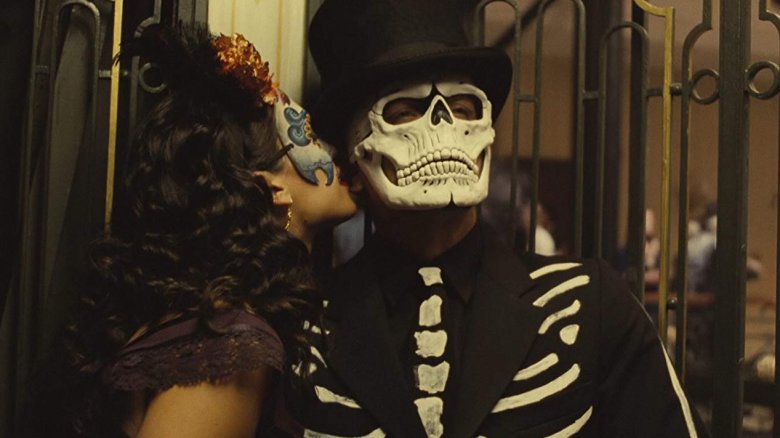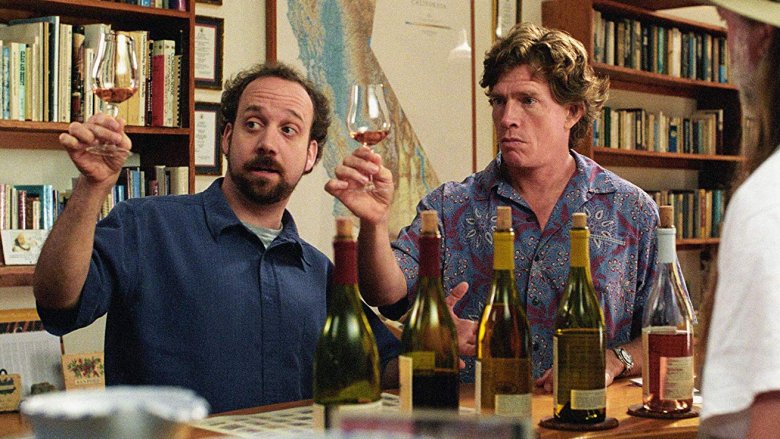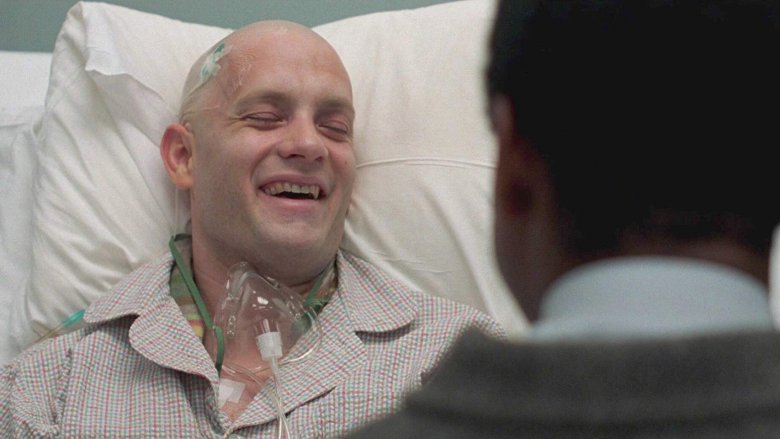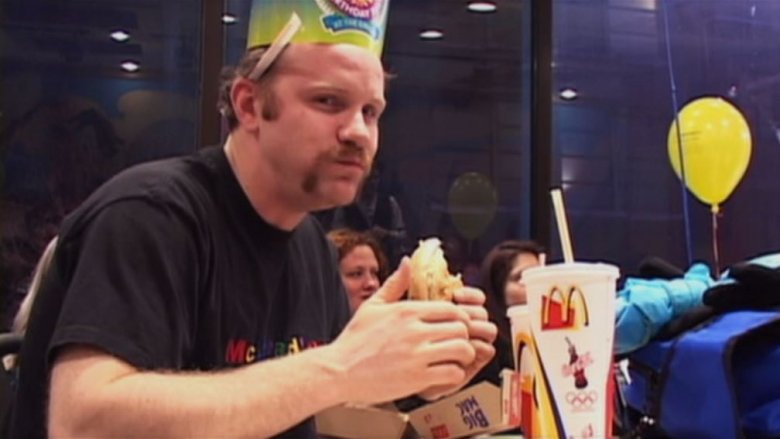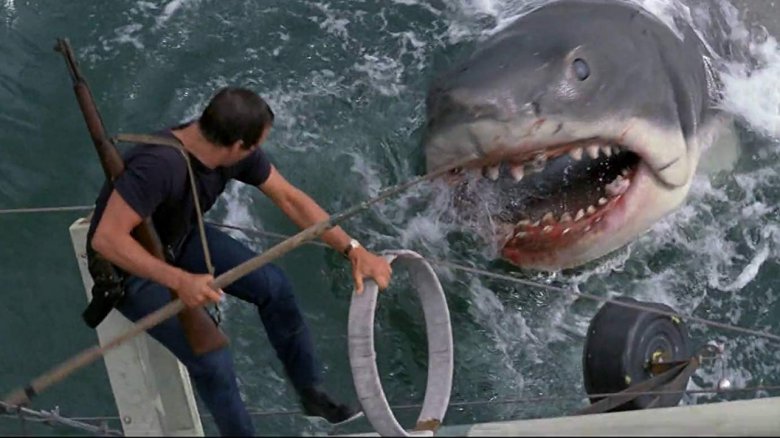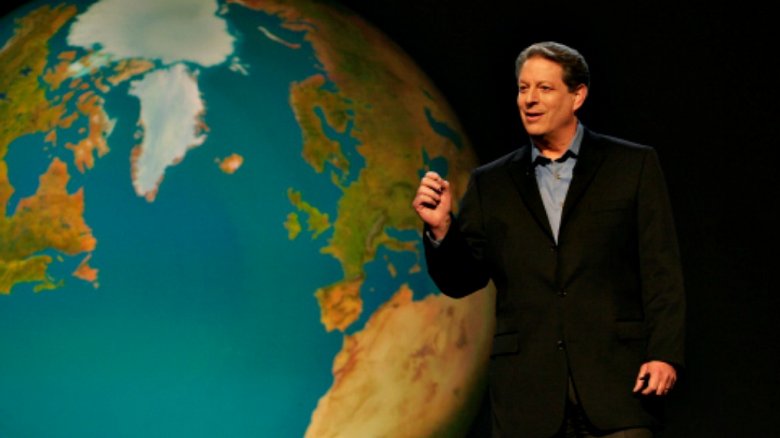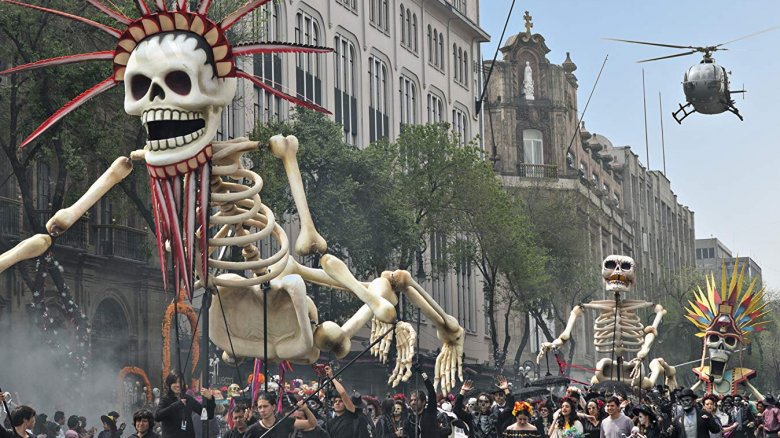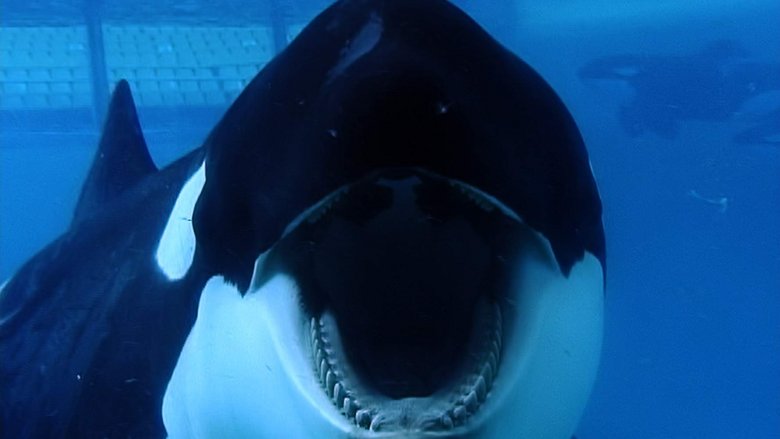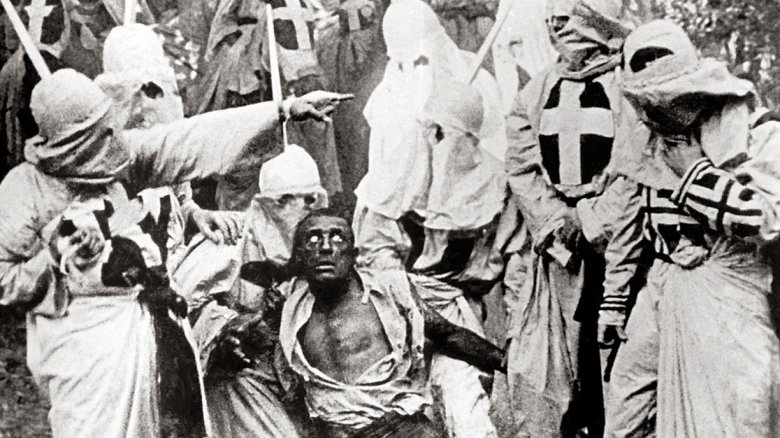Movies That Actually Changed The World
We may receive a commission on purchases made from links.
The film industry is generally considered part of the "entertainment business," and many people who make movies and watch them just think of films as pure escapism, separate from the concerns of the real world. Often times, this is the case, but every once in a while — whether intentional or not, for good or for ill — a single movie actually does cause some sort of measurable shift in society.
Perhaps a story calls attention to an important social issue that many were previously unaware of, making it into a national talking point. Perhaps the cool factor of seeing a celebrity do something on the big screen starts a new trend. Or unfortunately, perhaps the demonization of a person or thing ends up perpetuating negative stereotypes and causing actual harm in the real world. Some of these effects are small and some of them are large, some are fleeting and some are long-lasting, but all of them are worth taking a look at.
Not only are these tales of sometimes unintended consequences entertaining to read about, but looking over these cases might make you realize just how much your beliefs have been shaped by the media you consume, and make you more aware of where your ideas come from before you act on them or pass them along to others. We hope that reading this article might, in some small way, change your world as well.
Top Gun
Featuring some of the most thrilling aerial dogfights ever captured on film, with director Tony Scott delivering peak Tony Scott and star Tom Cruise delivering peak Tom Cruise, there has never been a cooler movie than Top Gun, and there has never been a cooler action hero than Pete Mitchell, a maverick fighter pilot so awesome that his call sign is literally "Maverick."
Believe it or not, the "need for speed" was not the only master that the makers of Top Gun were serving. The film was made in association with the U.S. Navy. In exchange for providing resources to the filmmakers, the Navy required final script approval, and made numerous changes to the movie before it was released.
Even though the Navy couldn't officially use the film as a recruitment tool, they didn't have to. According to the book Operation Hollywood: How the Pentagon Shapes and Censors the Movies, after the movie came out, the number of young men who enlisted into the Navy wanting to be aviators went up by 500 percent. And can you blame them? Who wouldn't want to be Maverick?
A sequel, Top Gun: Maverick, is slated for release in 2020, and although not much is known about it, part of it has already been filmed on the deck of the USS Abraham, indicating that the armed forces are once again lending their support. It's probably pretty safe to assume that they'll experience yet another spike in recruitment after the release of this one, too.
Sideways
Alexander Payne is a writer and director with numerous films under his belt, each a different flavor of dark comedy about sad middle-aged men, such as About Schmidt, The Descendants, and Nebraska. Perhaps his most acclaimed film, about the saddest and most middle-aged men of all, is Sideways. This film tells the story of Miles and Jack, two aging alcoholic friends who go on a week-long wine tasting tour through the Santa Ynez Valley. It was a big success both commercially and critically, even winning the Academy Award for Best Adapted Screenplay. But perhaps the biggest unexpected result of all was how this film turned the wine industry sideways as well.
Miles repeatedly states throughout the film that his favorite varietal of wine is pinot noir, and he also disparages merlot, outright refusing to drink it at one point. It seems that many wine-drinkers took Miles' preferences seriously, because shortly following the release of the film, sales of pinot noir went up by sixteen percent, while sales of merlot dropped by a few percent.
Perhaps an even larger change that many attributed to the film was a general spike in wine consumption and wine tourism. Many of the iconic locations from the film, such as The Hitching Post, have now become must-see destinations for tourists visiting California wine country, and there are numerous websites that offer guides to travelers that want to recreate Miles and Jack's journey through wine country, but hopefully with a bit more moderation.
Philadelphia
In 1993, contracting AIDS was essentially a death sentence. By that time, the disease had killed over 200,000 Americans. Despite that, widespread fear and hatred of homosexuals — the group that the disease was hitting the hardest — meant solving this problem was not particularly high on the list of priorities for most politicians.
It was into this climate that director Jonathan Demme released his heartbreaking courtroom drama Philadelphia. This film tells the story of Andrew Beckett, a successful lawyer who is secretly both a homosexual and also suffering from AIDS. Early on in the film, the partners at his law firm discover both of his secrets, and fire him shortly thereafter. What follows is an intense legal battle as Andrew attempts to sue his former employer for wrongful dismissal. Even though Andrew wins the case in the end, he loses his life shortly after, once the disease finally takes him.
By modern standards, this would be a fairly conventional movie, barely worth commenting on, but it cannot be overstated how unprecedented it was for a major theatrical release at its time. It is often credited as being a major part of de-stigmatizing AIDS, and helping mainstream America to consider the plight of homosexuals and the silent plague that had been consuming them. In his review, Roger Ebert, saying that a film like this was long past due, called it "a righteous first step" and said "with Philadelphia the ice has been broken."
Super Size Me
We all know that too much fast food is bad for you. The breakout hit documentary Super Size Me set out to answer one question: "Just how bad is it?" Filmmaker Morgan Spurlock made himself the guinea pig for a month-long experiment in which he would eat nothing but McDonald's, three meals a day for an entire month, and document the ongoing effects on his physical and mental health.
As you might imagine, things did not go well for him. Throughout the month, as his health began to deteriorate, numerous physicians urged him to abandon the diet, but Spurlock persisted. By the end of the experiment, he had gained about 30 pounds, lost a tremendous amount of muscle mass, and he had began to suffer from headaches, depression, and sexual dysfunction.
Eventually Spurlock's body was able to bounce back from the negative effects of making this film. The effects on the fast food industry, however, were permanent. Six weeks after the release of Super Size Me, McDonald's dropped the Super Size from its menu, presumably not only because they were seeking to rebrand themselves as more health-oriented, but also because the phrase "Super Size" had become forever tainted by its association with this film.
Bambi
The classic animated film Bambi is a coming-of-age story told through the eyes of an adorable little fawn being raised by his wise and loving mother. This movie looms large in the minds of modern viewers for a variety of reasons. Chief among these reasons is probably because of how much it made them cry when they first saw it. In perhaps the film's most iconic scene, Bambi's mother is shot and killed by an unnamed hunter. This scene is such a memorable moment in film history that AFI named this hunter the 20th greatest villain ever in their list of the 100 greatest film villains of all time.
The film also apparently struck a chord with viewers when it first came out in 1942, because Bambi is often credited as being responsible for bringing anti-hunting sentiments into the mainstream, and significantly decreasing the popularity and acceptability of the sport. One specific example of an incident that many attribute directly to the impact of Bambi came a year later, in 1943, when a group of hunters in Wisconsin pushed for an additional antlerless deer hunting season to control the state's out-of-control deer population at that time. There was enormous public outcry to this proposal, much more than the hunters had experienced in the past when attempting to pass similar measures, and so the push for an additional hunting season was rejected.
Jaws
Just as one film can make an entire generation fall in love with deer, another film can make a different generation hate sharks with a fiery passion for the rest of their lives. Jaws is considered influential for a variety of reasons. It solidified Steven Spielberg as household name, it demonstrated how to make a horror film on a limited budget, and it laid the groundwork for decades of summer blockbusters to come. Because of this, the years following the release of Jaws were a great time to be alive if you were both a movie fan and a human. They were not so great if you happened to be a shark.
Jaws' portrayal of sharks as vicious man-eating monsters created a completely unfounded widespread fear of sharks in the public consciousness that continues to today. It was at it most pronounced, however, in the summer of 1975, when the film first came out. Beach attendance fell sharply that summer, and false reports of shark attacks increased dramatically. The film is also thought to be responsible for increasing the popularity of shark hunting, which in turn led to a noticeable decline in the shark population.
In response to the unforeseen negative consequences of the film, Peter Benchley, the author of the original novel that Jaws was based on, later realized how misguided his portrayal of sharks was. He dedicated his life (not to mention his Jaws royalties) to shark conservation efforts.
An Inconvenient Truth
An Inconvenient Truth is a truly unique oddity. It's essentially a concert film documenting the presentation of an educational slideshow by former Vice President Al Gore. It was an unlikely candidate for mainstream cinematic success, and yet the film became one of the most successful documentaries of all time.
The "inconvenient truth" at the heart of the film is that human-caused climate change is real, and a significant threat to all life on the planet. Gore's goal in creating the film, in conjunction with director Davis Guggenheim, was to lay out the reality of this situation in no uncertain terms, and to outline the potential solutions to this problem. As Gore himself put it, "We have everything we need to get started, with the possible exception of the will to act. That's a renewable resource. Let's renew it."
Fortunately for Gore, Guggenheim, and perhaps all of us, a study by the Nielsen Company and Oxford University found that the film "had a significant influence on those that have seen it — in their awareness of the issues and their stated changes in habits and behaviors." Another paper found that within two months after the film was released, the number of voluntary carbon offsets that were purchased in areas where the documentary was screened increased significantly. There are numerous other ways that the film had an impact, such as directly inspiring a 2007 benefit concert called Live Earth. For the future of all humanity, let's hope that this film, and others like it, continue to have an impact.
Bernie
In the 2011 film Bernie, comedian Jack Black took a decidedly dark turn in his portrayal of Bernie Tiede, a real-life mortician who was convicted of the murder of his 80-year-old friend Marjorie Nugent. With this project, filmmaker Richard Linklater took "based on a true story" to a whole new level, as the movie featured real people who knew Tiede and Nugent in minor roles and cameos.
It is possible to interpret the events of the film such that Bernie's decision to murder his friend was somewhat defensible, brought on by a lifetime of circumstances outside his control, and apparently, some who saw the film were swayed by Bernie's charms. The film inspired lawyers and judges to re-examine some of the mitigating factors surrounding Tiede's case, including the long history of abuse he had suffered throughout his life, both as a child and at the hands of Nugent. This re-examination ultimately concluded with a twist ending as strange as anything in any fictional crime thriller. State District Judge Diane DeVasto ordered Tiede's release, with the highly unusual caveat that he live in an apartment in Richard Linklater's garage, a condition that Linklater agreed to.
Not everyone, however, was happy with this result. Shanna Nugent, the granddaughter of Marjorie Nugent, claims that Bernie is a dramatization of Tiede's defense, not the actual facts of the case. The Dallas Observer quoted Nugent as saying, "It really feels like to me Hollywood has taken over the Texas criminal justice system."
Spectre
The 2015 James Bond film Spectre opens with one of the most memorable action scenes in the entire history of the franchise. It features Bond attempting to stop a terrorist bombing in Mexico City during an enormous Día de Muertos (Day of the Dead) parade, complete with gigantic floats, live bands, and hundreds of people dressed as skeletons.
This sequence was planned in association with the Mexican government, who offered Sony tax incentives in exchange for portraying Mexico as a beautiful and exotic travel destination. This succeeded, as travelers from around the world did, in fact, flock to Mexico City the following year to experience this "old Mexican tradition." There was only one problem — the parade depicted in the film didn't actually exist, yet.
Up until 2015, Día de Muertos had been primarily celebrated in Mexico as more of a private family affair. Following the film's release, in order to match the expectations of foreign tourists, the Mexican government created a new ostentatious Day of the Dead parade directly based on the one that appeared in Spectre.
The reaction from the Mexican people was mixed, but many saw it as more of a cheap stunt than a genuinely welcome new tradition. It was Claudio Lomnitz, professor of Mexican studies at Columbia University, who perhaps best expressed the surrealism of the entire endeavor when he said, "There's an element of what we could call 'national-narcissism,' of a national imaginary in love with its own image, reflected in the mirror of Hollywood."
Blackfish
The truly chilling documentary Blackfish tells the tragic true story of Tilikum, an orca whale owned by SeaWorld who was responsible for the deaths of three people. The core thesis of the film is that, for beings as powerful and intelligent as orca whales, the living conditions that go along with captivity in an amusement park are inherently traumatizing, and that some level of psychosis — and eventually violence — is pretty much inevitable. Blackfish certainly doesn't blame the animals for their actions. Rather, it splits the blame both between the institutions that house them, such as SeaWorld, and the constant stream of customers who keep these businesses profitable.
Many who saw the film took its lessons to heart, because immediately after Blackfish came out, attendance at SeaWorld declined sharply. The damage to the company's reputation was so severe that over the course of the following year, their stock fell by 50 percent. Even though SeaWorld tried to enter damage control mode for a while, releasing a point-by-point rebuttal of many of the claims of the film, they were eventually forced to give in. In March of 2016, the park announced, "the current generation of killer whales will be the last orcas housed in captivity." You'd think that people who know as much about the ocean as SeaWorld would have realized sooner that you can't fight the tide of public opinion.
The Birth of a Nation
Though many of the films mentioned here have shown us that the power of film can be an enormous instrument for good, there is one that reminds us that it can also be used for evil. The white supremacist hate group known as the KKK formed shortly after the Civil War. The group had a brief moment of prominence in the late 1800s, but by 1915, it was almost entirely gone, existing only regionally in a few isolated locations.
Then the film Then Birth of a Nation came out, which portrayed the Klan as brave heroes, protecting innocent white women from evil dark-skinned villains (who were, in reality, white actors in blackface). Shortly after this, enrollment in the KKK skyrocketed, and it the Klan was reborn as a nationwide movement.
Fortunately, just as one piece of media gave power to the KKK, another one was able to take it away. In 1946, the KKK appeared in the Superman radio show as villains for a 16-episode arc called "Clan of the Fiery Cross." With the help of an activist named Stetson Kennedy, who had infiltrated the KKK, the writers of Superman portrayed the KKK as the hate group they truly were for the first time in a major work of popular American entertainment, destroying much of the mystique that once surrounded and empowered them.
